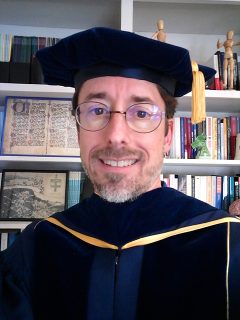TEACHER EDUCATION & EDUCATION STUDIES
EDST 180: Psychology of Learning (PSYC 180)
An introduction to brain structure and development in childhood and adolescence, memory systems and types of learning, and approaches to building knowledge, improving skills, and deepening understanding. Culminating topics include motivation, the nature and development of expertise, and instructional design. Practicum of 20 hours required.
EDST 450: Topics in Education Studies: Educating for Creativity
In this course we explore the nature of creativity and the role of creative thinking in diverse areas of study, work, and everyday life. We also examine critiques of traditional education’s impact on the development of creativity and look for approaches that show greater promise.
EDUC 430: Educating All Learners
This course for students in the Teacher Education Program focuses on two important aspects of K-12 teaching: (1) helping learners develop academic language and disciplinary literacy; and (2) adapting instruction for a variety of learners, including students with disabilities, English learners, struggling readers, students with gaps in knowledge, and advanced students. Students build knowledge through lecture, reading, and class activities, and develop skills by planning and teaching practice lessons. Practicum of 20 hours required in a class that includes learners with special needs.
EDUC 650: Student Teaching
Student teaching is a full-time, full-semester (18-week) internship of practice teaching in K-12 schools. Lawrence student teachers are present for the full school day and engaged in planning, instruction, assessment, and other school duties. Through a combination of modeling and practice, student teachers learn how to be a teacher, developing the knowledge and skills they need to succeed in their chosen profession.
EDUC 660: Advanced Methods in Teaching
This weekly seminar engages students in critical reflection on their student teaching experience. Student teachers explore concerns related to teaching and learning as well as issues of school organization, education policy, and teaching as a profession.
COGNITIVE SCIENCE & LINGUISTICS
COSC 300: Topics in Cognitive Science: The Making of Scientific Facts
In this seminar we examine scientific facts: what they are and how they are constructed and contested. Readings include physician Ludwik Fleck’s Genesis and Development of a Scientific Fact (1935), physicist-historian Thomas Kuhn’s The Structure of Scientific Revolutions (1962), and anthropologist Bruno Latour and sociologist Steve Woolgar’s Laboratory Life: The Construction of Scientific Facts (1979). We also explore the practices of scientists at Lawrence and consider the role of facts in disputes over science education and climate change.
COSC 345: Distributed Cognition and the Extended Mind (ANTH/PSYC 345)
The new science of the mind treats cognition as a distributed process involving the brain, body, and world. This seminar explores the role of material settings and tools, bodily engagement, social interaction, and cultural processes in human reasoning, problem solving, and learning. Students will write short papers examining aspects of cognitive activity in real-world settings.
COSC 545: Gesture Studies (LING/PSYC 545)
Gesture studies is an interdisciplinary field that examines the use of the hands in communication and cognition. In this seminar we discuss contemporary research on gesture, including gesture types, gesture production and perception, gesture development, relations of gesture to thought and language (spoken and signed), and functions of gesture in human interaction, problem-solving, and learning. Students explore topics of personal interest in a project and presentation.
LING 470: Cognitive Linguistics (COSC 470)
Cognitive Linguistics is a subfield of cognitive science that studies conceptual structure, language, and meaning in relation to general cognitive mechanisms. Topics include cognitive and construction grammars, lexical semantics (word meanings), conceptual metaphor and conceptual blending. In this seminar, we read and discuss seminal articles in the field and pursue further study on topics of interest.
